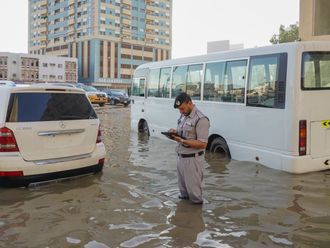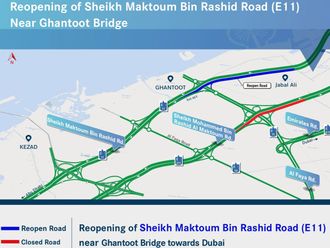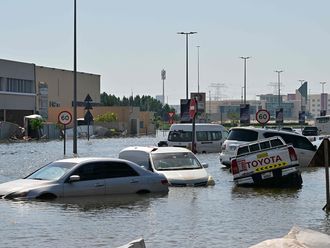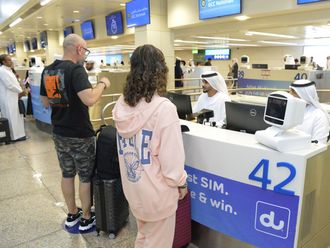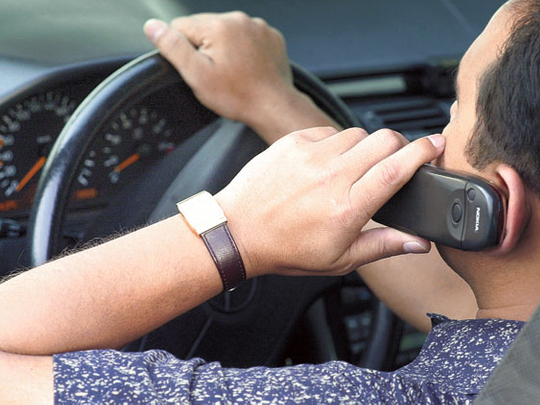
Abu Dhabi: Attitudes towards reckless driving and adherence to peer pressure by young Emirati males contribute to the alarming number of car accidents and fatalities on UAE roads, a new study has found.
Radio 2: Nasreen Abdulla reports on the study of Emirati and Arab drivers' attitudes towards reckless driving
* Audio supplied by Radio 2
The study, conducted by faculty at the UAE University, recommended that combating these behaviours required concerted efforts from government departments as well as social organisations.
The study was funded by the Emirates Foundation for Philanthropy. It was conducted by Dr Taha Amir, professor of psychology and counselling, and Dr Shamma Al Falasi, assistant professor of social work, and took over a year and a half to complete.
As many as 576 individuals between the ages of 18 and 33 were surveyed from across the UAE for the project. The sample was then divided into three groups for analysis, one consisting of 466 Emirati males, the second group made up of 52 Emirati females and the third, including 58 Arab expatriates.
Breaking rules
The results showed that Emirati females and Arab expatriates adhered more to speed limits and driving regulations, while the surveyed male Emiratis appeared to "thrive on risk" and did not abide by traffic laws.
About 25 per cent of Emirati males admitted to regularly exceeding speed limits and overtaking other drivers using the wrong lanes. Nearly 2.6 per cent of them also said they almost always jumped the red traffic light.
In addition, 50 per cent of the Emirati male drivers said they did not regularly use seatbelts while driving, used mobile phones often, drove in the wrong direction on one-way streets and stopped on inner lanes to chat to other drivers. Some even ate and drank while behind the steering wheel, while other Emirati male drivers said they did not use indicators.
Dr Amir stressed, however, that this did not mean Emirati males were the only drivers responsible for traffic fatalities and accidents.
"This study focused on finding the behaviour patterns and attitudes which cause Emirati males to be unsafe on the roads. However, many other groups of people also drive very rashly and I would like to explore those reasons if I have time and the required funds," Dr Amir explained.
"Reckless driving is not a recent phenomenon; it is only more obvious now because of the increased number of cars and people on UAE roads. In fact, it seems that people here do not consider the car to be just a means of transportation. Cars are like horses here; people have the most unique ones and they like to show them off," he added.
Dr Amir also said that unsafe driving was prevalent in many other parts of the world, and perhaps a zero-tolerance policy to reckless driving was the key to safer UAE roads.
Human factor
"Most road accidents occur due to human factors rather than road or vehicular conditions. Drivers here are very skilful, and they therefore believe that they will not get into accidents even if they do not follow a traffic regulation. This is what needs to be changed," he said.
Dr Amir recommended that social organisations explain to youth that attitudes behind reckless driving were both foolish and dangerous.
Results of the study
• 576 Emirati and Arab drivers surveyed of which
• 60% drove below legal age of 18 (including 7.3% between 8-12 years)
• 66% were involved in at least one road accident
• 25% sustained injuries from road accidents
Among the 466 Emirati males surveyed in the study
• 25% regularly exceed speed limits, overtake using wrong lanes, tailgate
• 2.6% almost always jump the red traffic light
• 50% do not regularly use seatbelts and talk on the phone while driving
• 50% stop on inner lanes to chat to other drivers, and drive in the wrong direction on one-way streets
• Most said non-binding safety measures, like using indicators while driving, were considered unpopular
Source: UAE University


